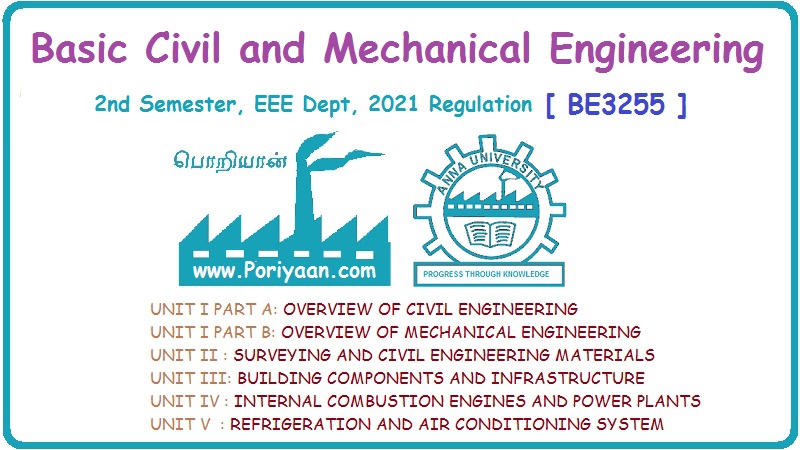Basic Civil & Mechanical Engineering: UNIT II: q. Modern materials
Waterproofing and damp-proofing materials
Civil Engineering Materials
Waterproofing is a surface treatment of a structure to prevent passage of water from one side to another under normal or hydrostatic pressure
WATERPROOFING AND DAMP-PROOFING MATERIALS
Waterproofing
is a surface treatment of a structure to prevent passage of water from one side
to another under normal or hydrostatic pressure. Damp-proofing is the treatment
to prevent passage of water from one side to another by capillary action. Both
waterproofing and damp-proofing are done using the same materials for RCC
roofs, basement walls and flooring. The various materials used for this purpose
are briefly explained below.
1. BITUMINOUS MATERIALS
Earlier
bitumen was impregnated with vegetable or animal fibres and sheets were made.
The popular trade name was tarfelt. Such sheets were fixed to concrete roofs
with the help of hot bitumen. The drawback of such sheets was that blisters
were formed due to vaporization of moisture underneath. As a result, leakages
were seen for a long time soon after the rainy season. Hence, these sheets are
replaced by sheets of fibreglass and plastics.
2. INTEGRAL COMPOUNDS
In
cement mortar or concrete, 2% of water proofing compounds like Pudlo or Impermo
may be added. These compounds are available in the form of powders. They
improve workability with minimum water requirements. Ultimately, it reduces
permeability.
3. EPOXY-BASED MATERIALS
Epoxy
materials are used for waterproofing terraces, basements and bathrooms. Two
coats of epoxy mix results in a reasonably good waterproofed surface.
4. ELASTOMERIC MATERIAL
Elastomeric
material is a special paint for waterproofing. Using rollers, spray or brush,
it is applied to concrete surfaces in two coats. The thickness of each coat may
be 0.5-0.75 mm. Among many varieties, acrylic paints are the most popular.
5. SLURRY COAT
These
are cement -based chemicals in which silica sand acts as a carrier. During
hydration, they form crystals which fill the pores in cement. The crystals
prevent the passage of water but permit vapours to escape. The slurry coat may
be applied with brushes or by grouting.
Basic Civil & Mechanical Engineering: UNIT II: q. Modern materials : Tag: : Civil Engineering Materials - Waterproofing and damp-proofing materials
Related Topics
Related Subjects
Basic Civil and Mechanical Engineering
BE3255 2nd Semester 2021 Regulation | 2nd Semester EEE Dept 2021 Regulation
